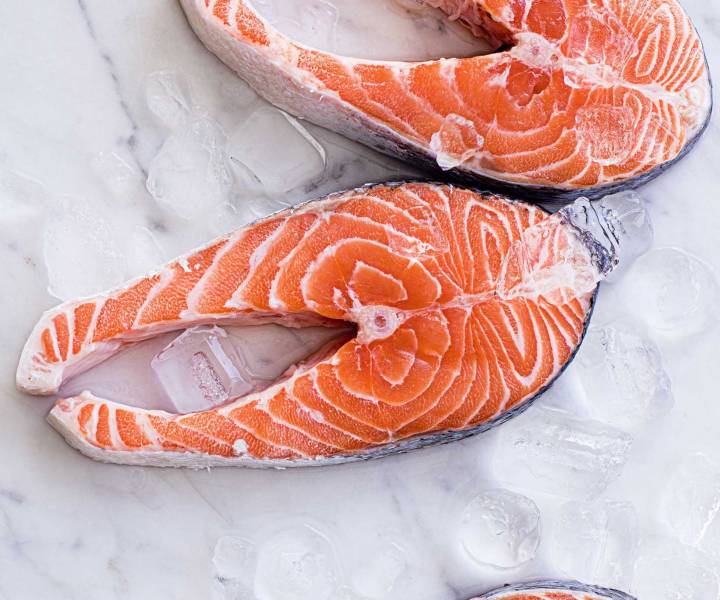Health
How much protein should you really be eating?
by Helen Foster

How much protein do you really need? Possibly a lot less than you think. Helen Foster reveals everything you need to know...
What does protein do in the body?
‘When you eat proteins, they break down into amino acids that help the body grow and repair. Our muscles, skin and hair are all made from the protein we eat,’ explains Victoria Taylor, senior dietitian at the British Heart Foundation.
How much protein do we need?
Most adults need around 0.75g of protein per kilo of body weight, per day. For the average woman, this means around 45g of protein a day; for men it’s around 55g. That translates to roughly two palm-size portions of meat, fish, nuts or tofu. However, on average in the UK, we eat almost double that amount.
Why might too much protein be harmful?
According to a 2015 study from the University of South California, eating a high-protein, carnivorous diet – where protein makes up more than 20 per cent of calories – is linked to an increased risk of death from cancer or diabetes, and a shorter lifespan. Why? The most obvious reason is that animal-based sources of protein can be high in saturated fat, along with other substances that are linked to heart disease and some types of cancer. Australian researchers have also shown that consuming a lot of protein speeds up the process our body uses to make new cells – and as it gets faster it can make mistakes that may negatively affect health in the long term.
What about older people?
If you’re over 65, however, low-protein plans may not be better, as we need higher amounts of protein to help us build muscle as we age. ‘Over-65s should increase intake to 1.2g per kilo of body weight a day,’ says Dr Elizabeth Williams from the University of Sheffield Healthy Lifespan Institute.
What sort of protein should we be eating?
Don’t just think about meat. You also find protein in eggs, dairy, fish, beans, lentils, pulses, tofu, quinoa, bread and even some vegetables. ‘Eat more peas, beans and lentils, two portions of fish a week, and no more than 70g of red and processed meat per day,’ says Victoria Taylor. When you do choose plant-based proteins, vary these to ensure you get all the amino acids you need. You’ll find a list of how much protein is in some common foods here. Lastly, spread your intake throughout your day. ‘Pick milk or yogurt at breakfast; an egg, some baked beans or tinned fish at lunch; and lean meat, fish or vegetarian protein such as beans or tofu in the evening,’ says Victoria.












